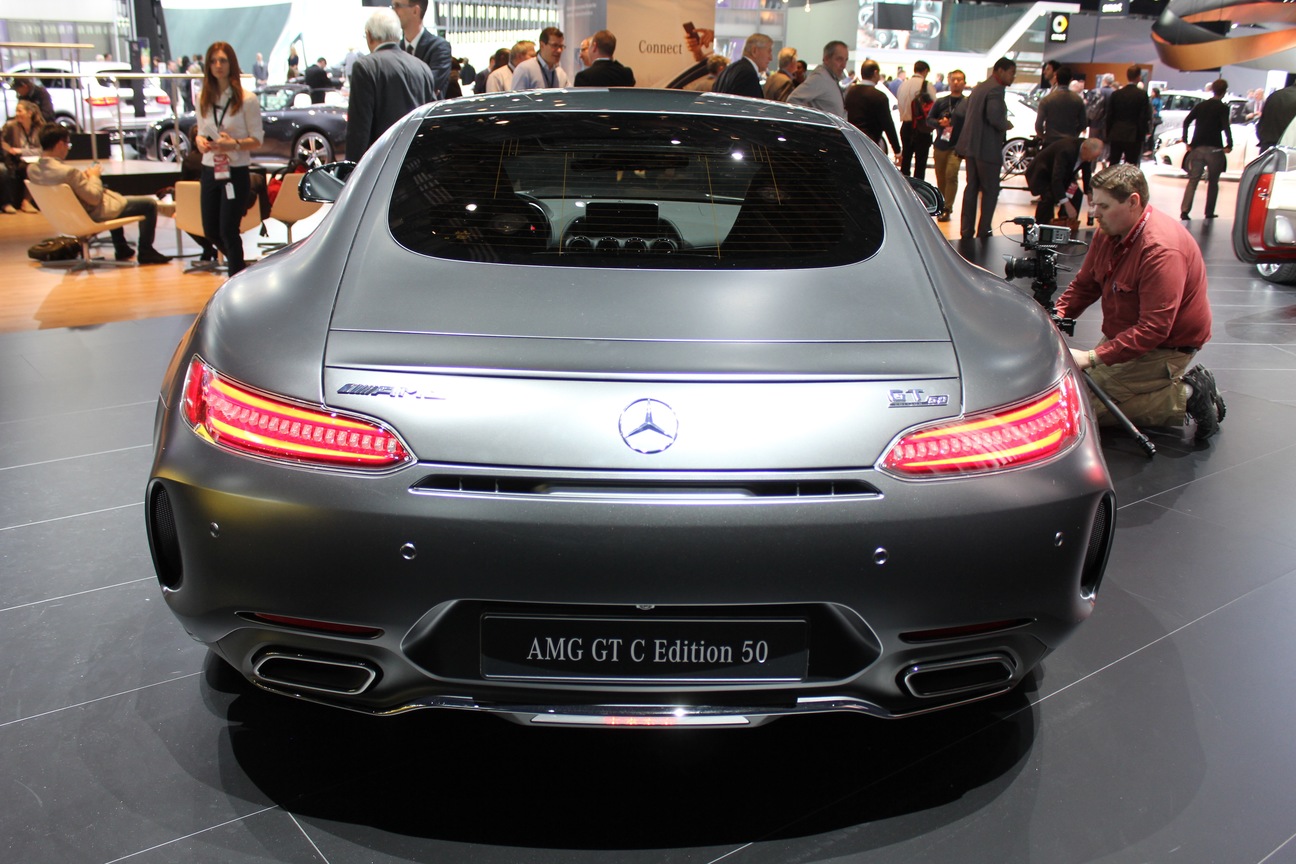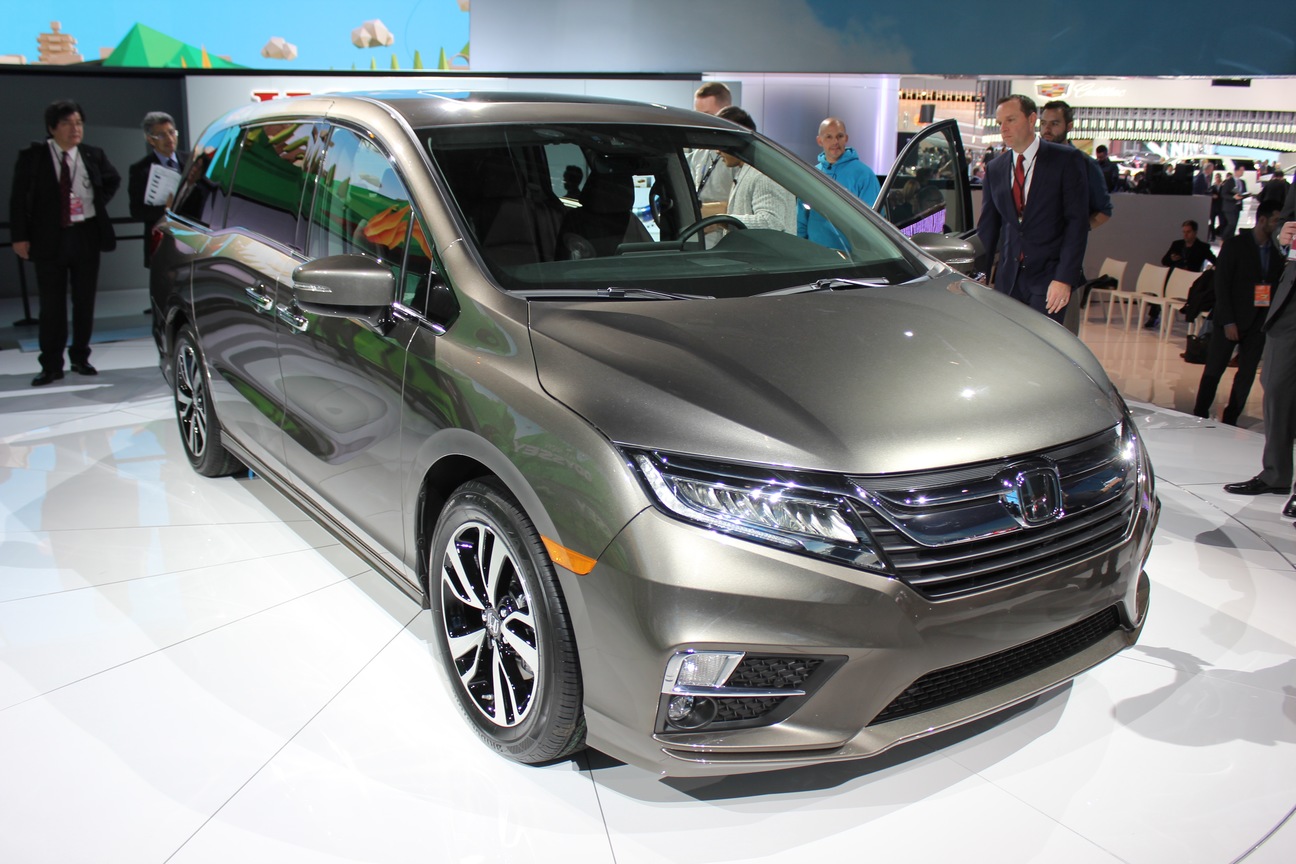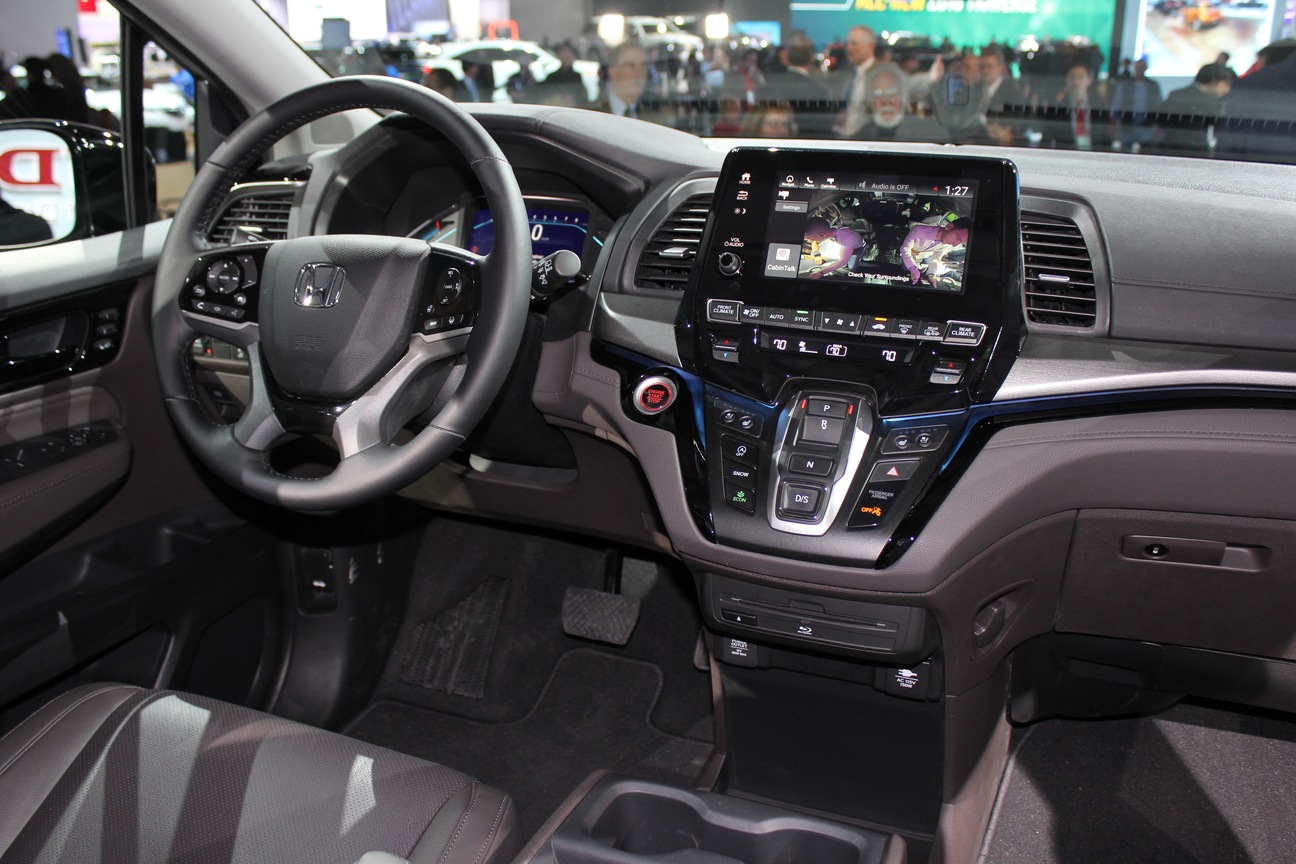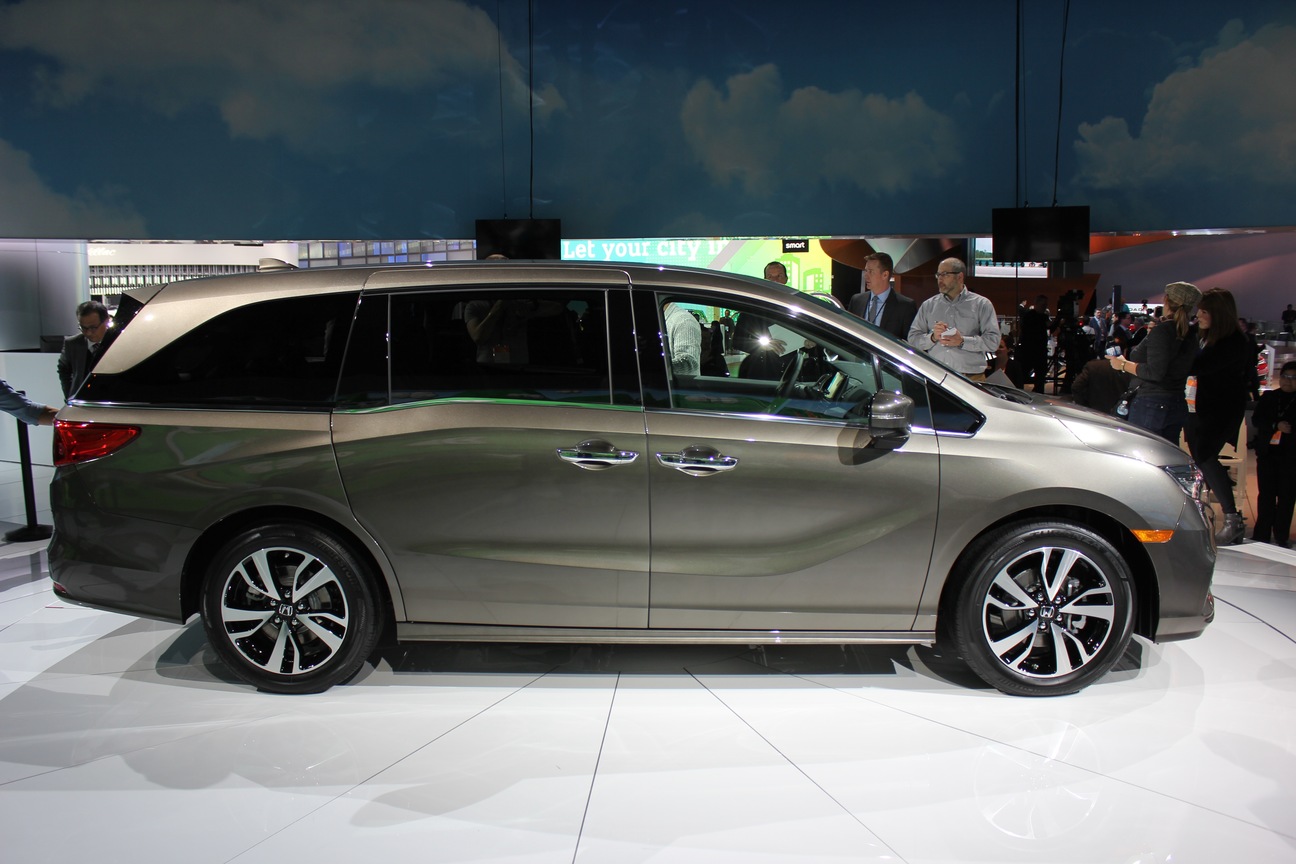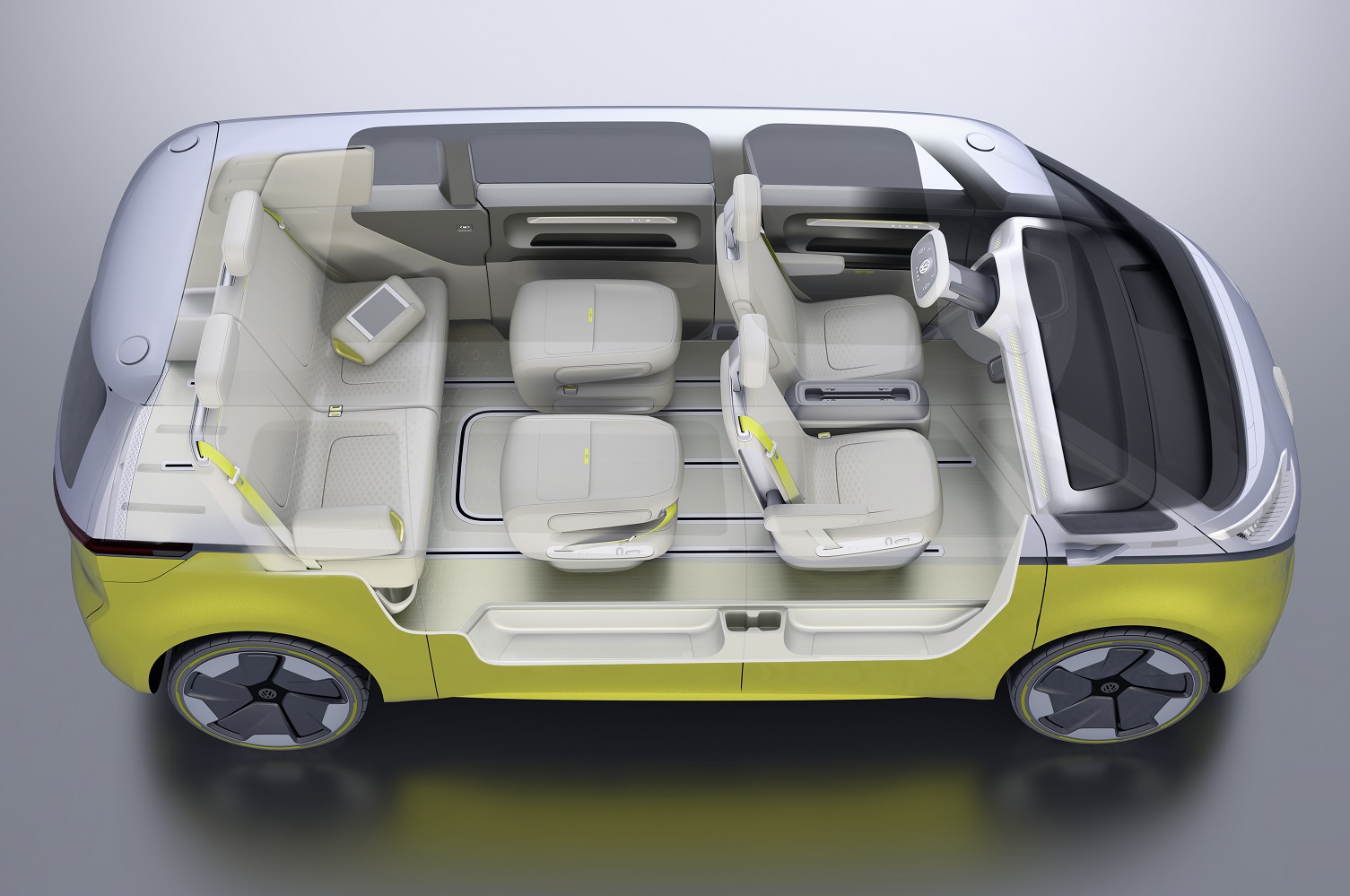When it debuted at the 2017 Detroit Auto Show, the Volkswagen I.D. Buzz concept was presented as the latest in a long line of design studies that explore what a 21st-century Bus could look like. Now, one of the company’s top executives has confirmed the retro-inspired people-mover is finally moving toward production.
At this year’s Monterey Car Week, Volkswagen CEO Herbert Diess confirmed a production version of the I.D. Buzz will arrive in dealerships in 2022. “After the presentations at the global motor shows in Detroit and Geneva, we received a large number of letters and emails from customers who said, ‘please build this car,'” Diess said in a statement.
What is it?
The I.D. Buzz name suggests the concept is a follow-up to the original I.D. that broke cover last year during the Paris Auto Show. At 194 inches long, it takes the form of a tall, boxy van whose design is heavily inspired by the original, rear-engined Bus launched in 1950.
The idea of a modern-day Bus isn’t new. The Microbus concept introduced at the 2001 Geneva show and the Budd-e shown last year at the Consumer Electronics Show (CES) were both design studies that explored the concept of a modern-day Bus. However, the new I.D. concept takes the heritage-laced design a step further by adopting styling cues such as chromed trim on the belt line that ends in a V on the front fascia, tall quarter windows integrated into the front doors, and air vents cut into the rear roof pillars. Designers stopped short of giving the concept a split windshield and round headlights, though LED turn signals positioned low on the front fascia hark back to the original model.
Beneath the surface
The retro treatment is only skin deep. The I.D. Buzz rides on a longer version of the modular MEB platform found under the first I.D. concept, and it’s powered by a pair of electric motors that provide 369 horsepower to all four wheels. A large, 111kWh battery pack directly integrated into the chassis aims to make range anxiety a thing of the past by offering up to 270 miles of range. An 80 percent charge is available in just half an hour when using a quick charger.
While the Beetle-based Bus of yore logged a 0-to-60 time of “eventually,” the I.D. Buzz performs the benchmark sprint in five seconds flat. Its top speed is electronically limited to 99 mph. The Wolfsburg-based company explains it would be relatively simple to create a more basic version of the concept powered by a smaller, 83kWh battery pack and a single, 268-horsepower motor out back. However, no gasoline-powered model is planned because the MEB was designed solely to accommodate electric drivetrains, according to Car & Driver.
The I.D. concept was designed with autonomous driving in mind. The spoke-less steering wheel retracts into the dash at the simple push of the round VW logo, and the driver becomes a passenger as the task of driving is delegated to laser scanners, ultrasonic and radar sensors, and cameras that scope out the road ahead. Going into what’s called I.D. Pilot mode also makes the ambient lighting warm and relaxed, encouraging users to sit back and enjoy the ride.
The cabin offers space for up to eight passengers spread out over three rows of seats. Rails integrated into the wood floor and a clever multipurpose center console let users configure the interior in a variety of different ways. For example, the I.D. Buzz can carry eight adults, four with the console set up as a table, or two passengers and over 260 cubic feet of cargo. The front seats pivot 180 degrees when I.D. Pilot mode is engaged to create a spacious, living-room-like atmosphere.
When can I buy one?
Christian Senger, the head of Volkswagen’s e-mobility division, told Digital Trends the first car to ride on the MEB platform will be a Golf-sized hatchback. It will replace the E-Golf when it goes on sale in 2020. Two years later, VW will sell both consumer and commercial van models with styling borrowed from the I.D. Buzz Concept, according to Automotive News.
Update: Added news of new I.D. Buzz versions in the works and confirmed production date of 2022.

